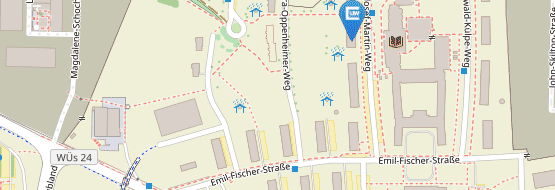ZBL [denk]anstoß - AI in teaching
AI as an opportunity and challenge for teaching is a key topic at the CTL. With the [denk]anstoß programme, we want to dive deep into the topic this year.
Browse through our lectures, workshops, support offers, and informal exchange formats:
Studierwerkstatt-Workshop: AI as a Tool for Writing [ENG]
Artificial Intelligence (AI) is changing everything, including academic writing, research, and more. But AI is more than just chatbots like ChatGPT. With a growing number of AI tools available, it’s challenging to determine which ones are truly useful and how to make the most of them.
That’s why we’re offering a workshop in the upcoming summer semester to explore both the opportunities and challenges of AI. You’ll gain insights into different tools and the technology behind AI, learn how to use them effectively to improve your writing, and understand the academic guidelines for their application.
If you’re curious about the do's and dont's of AI at the University, join our workshop!
Friday, 23.01. ,10 am - 1pm, at ZBL (Room 02.108)
instructor: writing tutor Lukas Ehrenfeld
further information and registration
A/D: KI-Kompetenzen in der Hochschullehre: Kreative Einsatzmöglichkeiten generativer KI (German only, online)
Das Seminar richtet sich an Lehrende, die bereits erste Erfahrungen mit generativer KI gesammelt haben und nun weitere Anwendungsszenarien und Strategien zur Verbesserung der Qualität der KI-Erzeugnisse kennenlernen wollen. Die erste Sitzung gibt einen Überblick über Stärken und aktuelle Schwächen generativer KI. Zwischen den beiden Sitzungen erproben Sie in der Selbstlernphase die vermittelten Strategien im Dialog mit einer KI Ihrer Wahl. In der zweiten Sitzung reflektieren wir die Erfahrungen aus der Selbstlernphase und fokussieren auf das Erstellen von lernförderlichen KI-Bildern sowie optional auf die Entwicklung von aktivierenden KI-Aufgaben.
Date: May 12 and May 19, 1 p.m. to 3 p.m.
further information and registration
AI Consulting
An opportunity for you as a teacher to reflect on the use of artificial intelligence (AI) in higher education teaching with trained educators, share your knowledge, and develop new ideas. At WueDive, we see ourselves as a point of contact for exchange, collegial learning, and networking. To the consulting services
AI for literature research and academic writing
Are you a student, graduate, or doctoral candidate with questions about the appropriate and permissible use of generative AI and AI-based literature research tools? Then contact the Writing Center. Our qualified writing tutors and the director of the Writing Center are available as contact persons for individual writing consultations, workshops, or our moderated learning and writing groups. To the writing center
WueCampus course room "Text- and media-generating artificial intelligence (ChatGPT & Co) in teaching"
Here you will find basic resources and information to help you integrate artificial intelligence into your teaching in a targeted manner. You will also be informed about upcoming courses and lectures in the 'Event information' forum in the WueCampus course room.
To the course room
Enrolment code: KI_1m_Hoersaal
Publication: Kritisches Denken mit ChatGPT fördern und einen souveränen Umgang mit der KI kultivieren
Jahn, D. (2025). Kritisches Denken mit ChatGPT fördern und einen souveränen Umgang mit der KI kultivieren. In: Grundlagen der Weiterbildung e.V., Hagen, ed. Grundlagen der Weiterbildung - Praxishilfen. Köln: Luchterhand. GdW-Ph 241 Januar 2025. S. 1-36.
abrufbar z.B. über Research Gate
Utilising artificial intelligence productively for teaching - that is the common goal of the funded AI projects in the WueDive project. Employees and students from various faculties are working on specially trained chatbots and AI assistance models, developing adaptive learning environments or testing existing tools for teaching applications. To the projects
The ZBL also recommends...
- Hochschulforum Digitalisierung: AI qualification offers for university members - an annotated collection of links
- KI-Campus - the learning platform for artificial intelligence
The IT Services has compiled an overview of AI tools at JMU
[denk]anstoß - what is that anyway?
From self-organisation, reading and writing strategies to digital literacy and critical thinking - with the "[denk]anstoß" format, we focus on an interdisciplinary topic every year, which often falls by the wayside due to the tightly scheduled university routine.
In addition to an introductory lecture at the start of each semester, we offer brief insights into current discourse, present tried-and-tested concepts, highlight strategic options for action or invite discussion and participation.
The formats are aimed at students and teaching staff.


![Logo [denk]anstoß with "Artificial Intelligence - key topic 2025"](/fileadmin/_processed_/6/b/csm_denkanstoss_Header-ENG_4a355e560f.png)
